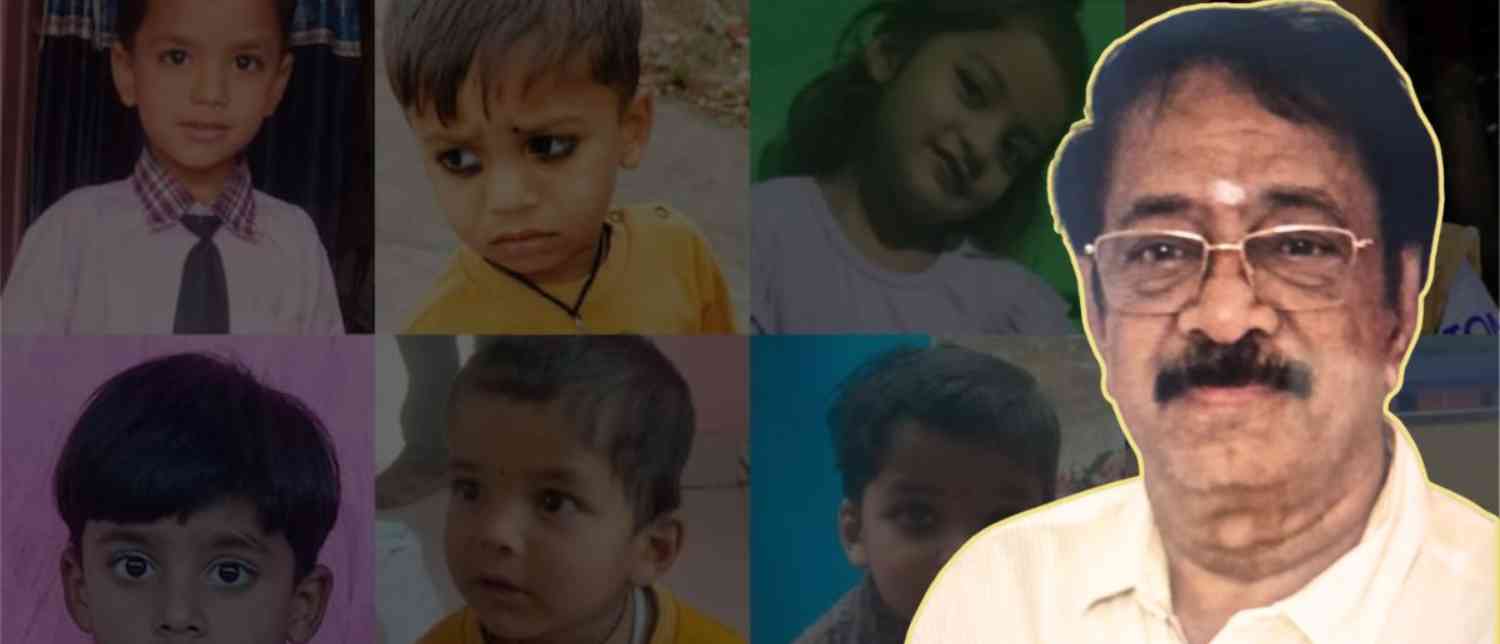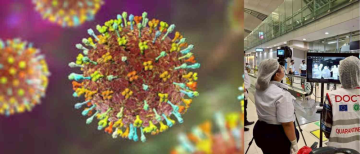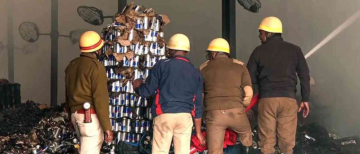In one of India’s most horrifying pharmaceutical scandals, the owner of a Tamil Nadu-based drug company has been arrested after a toxic batch of cough syrup claimed the lives of at least 22 children across multiple states. The syrup, marketed under the brand name Coldrif, was found to contain diethylene glycol (DEG) — a deadly industrial chemical used in products like printing ink and glue.
The arrest of Ranganathan Govindan, owner of Sresan Pharmaceuticals, marks a major turning point in an unfolding investigation that has shaken public confidence in India’s drug manufacturing oversight. The tragedy, centered in Madhya Pradesh’s Chhindwara district, has also raised urgent questions about systemic regulatory failures and the dark underbelly of India’s loosely monitored pharmaceutical sector.
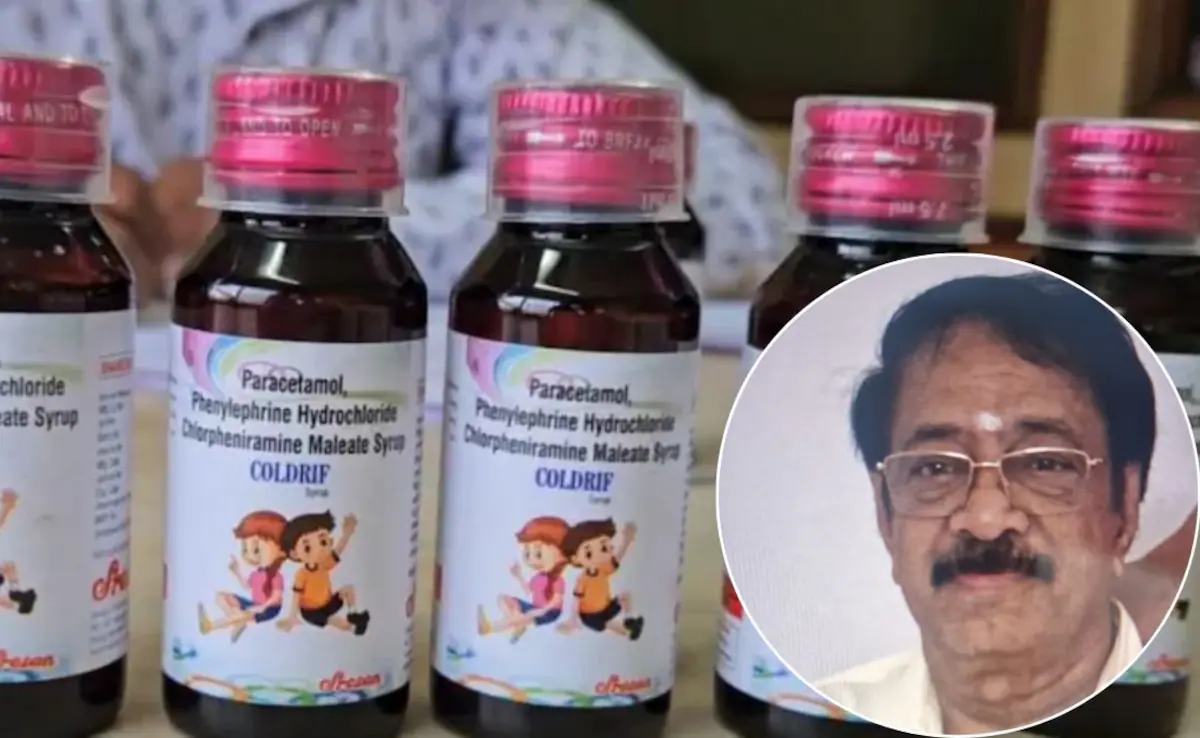
The Arrest That Shook the Pharma Industry
After days on the run, Ranganathan was arrested in Chennai late Wednesday night in a meticulously planned midnight operation conducted by the Madhya Pradesh police with support from Tamil Nadu officials. He had been evading authorities since reports first surfaced linking his company’s syrup to the deaths of several children.
A reward of ₹20,000 had been announced for information leading to his capture. According to police sources, Ranganathan was tracked down around 1:30 am, following intensive surveillance that involved monitoring his vehicles, residence, and financial transactions. The arrest team included female officers, cyber experts, and drug inspectors, underscoring the complexity of the investigation.
After his arrest, police escorted him to Sresan Pharma’s Kancheepuram factory, where they seized crucial documents and chemical samples believed to be linked to the adulterated batch. The Madhya Pradesh police are now seeking a transit remand from a Chennai court to bring him to Chhindwara, where most of the child deaths occurred.
Officials have charged Ranganathan with adulteration, culpable homicide not amounting to murder, and endangering the safety of children. Despite the mounting evidence, he has denied all allegations, stating that “investigations will prove his stance.”
A Meticulous Operation Spanning Two States
The operation to arrest Ranganathan was a carefully orchestrated mission that began on October 5, a day after a criminal case was filed against Sresan Pharmaceuticals. A special police team from Madhya Pradesh, led by Sub-Divisional Police Officer (SDOP) Parasia Jitendra Singh Jaat, reached Chennai armed with precise intelligence.
For nearly three days, the team monitored Ranganathan’s movements, coordinating closely with Chennai city police and Tamil Nadu’s drug control authorities. Once his location was confirmed, the team struck swiftly in the early hours of the morning, arresting him without resistance.
“This was a coordinated effort that required continuous tracking, local support, and technical expertise,” said a senior police official familiar with the operation. “It was crucial to prevent him from fleeing again or destroying evidence.”
Following his arrest, the drug manufacturing unit in Kancheepuram was sealed, and key records and samples were confiscated. Authorities are now expanding the investigation to trace the entire supply chain, including chemical suppliers, stockists, and medical representatives who may have played a role in distributing the tainted syrup.
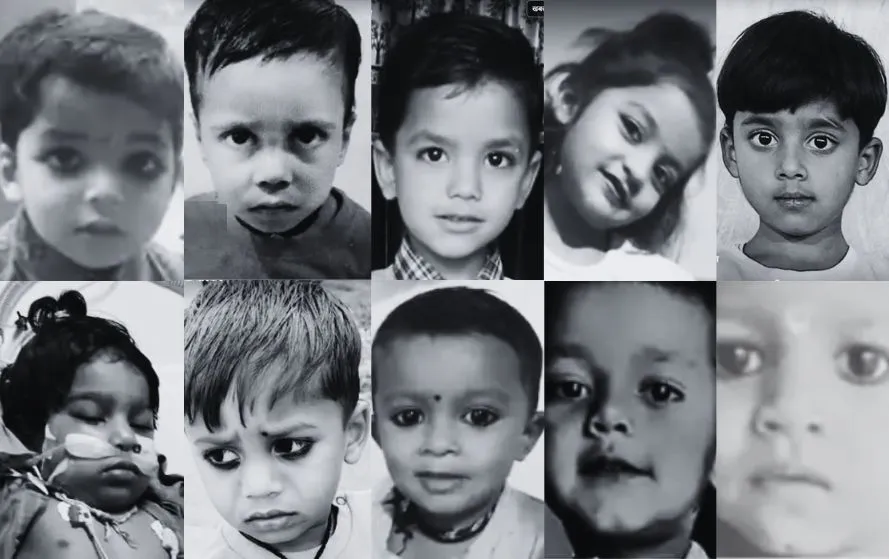
The Toxic Secret Behind Coldrif
Coldrif syrup, widely prescribed for children suffering from colds, coughs, and respiratory infections, turned lethal due to gross violations in its manufacturing process. Tests conducted by the Tamil Nadu Drugs Control Authority earlier this month confirmed the presence of diethylene glycol (DEG) — a toxic solvent known to cause severe kidney, liver, and nervous system damage.
An inspection of Sresan Pharmaceuticals’ Kancheepuram facility uncovered unbilled containers of DEG, revealing that the company had been adding 46–48% DEG to its cough syrup — nearly 500 times the permissible limit of 0.1%.
Investigators suspect that the company may have used DEG as a cheaper substitute for glycerin or propylene glycol, which are safe pharmaceutical-grade solvents. This cost-cutting move, however, turned the syrup into a poisonous concoction, leading to catastrophic consequences.
Following the findings, the Tamil Nadu Drugs Control Authority immediately halted all production, froze existing stock, and suspended the company’s license. Several batches of Coldrif were subsequently recalled, and at least nine Indian states have now banned the syrup altogether.
Children’s Deaths and Mounting Grief
The death toll linked to Coldrif syrup has now risen to 22, with the victims all being young children between the ages of 2 and 8. Most deaths occurred in Chhindwara district of Madhya Pradesh, though fatalities and cases of serious kidney failure have also been reported in Rajasthan and other states.
According to Chhindwara’s Additional Collector Dhirendra Singh Netri, two more children, identified as Vishal (5) and Mayank Suryavanshi (4) from Parasia town, succumbed to kidney failure caused by the contaminated syrup while undergoing treatment in Nagpur, Maharashtra.
“These children died due to suspected kidney failure linked to the consumption of toxic Coldrif syrup,” Netri confirmed. Several other children remain under medical supervision.
The sheer scale of the tragedy has devastated families and sent shockwaves through the medical community. “We trusted that what we were giving our children was medicine, not poison,” said one grieving parent from Chhindwara, echoing a sentiment now shared by dozens of families.
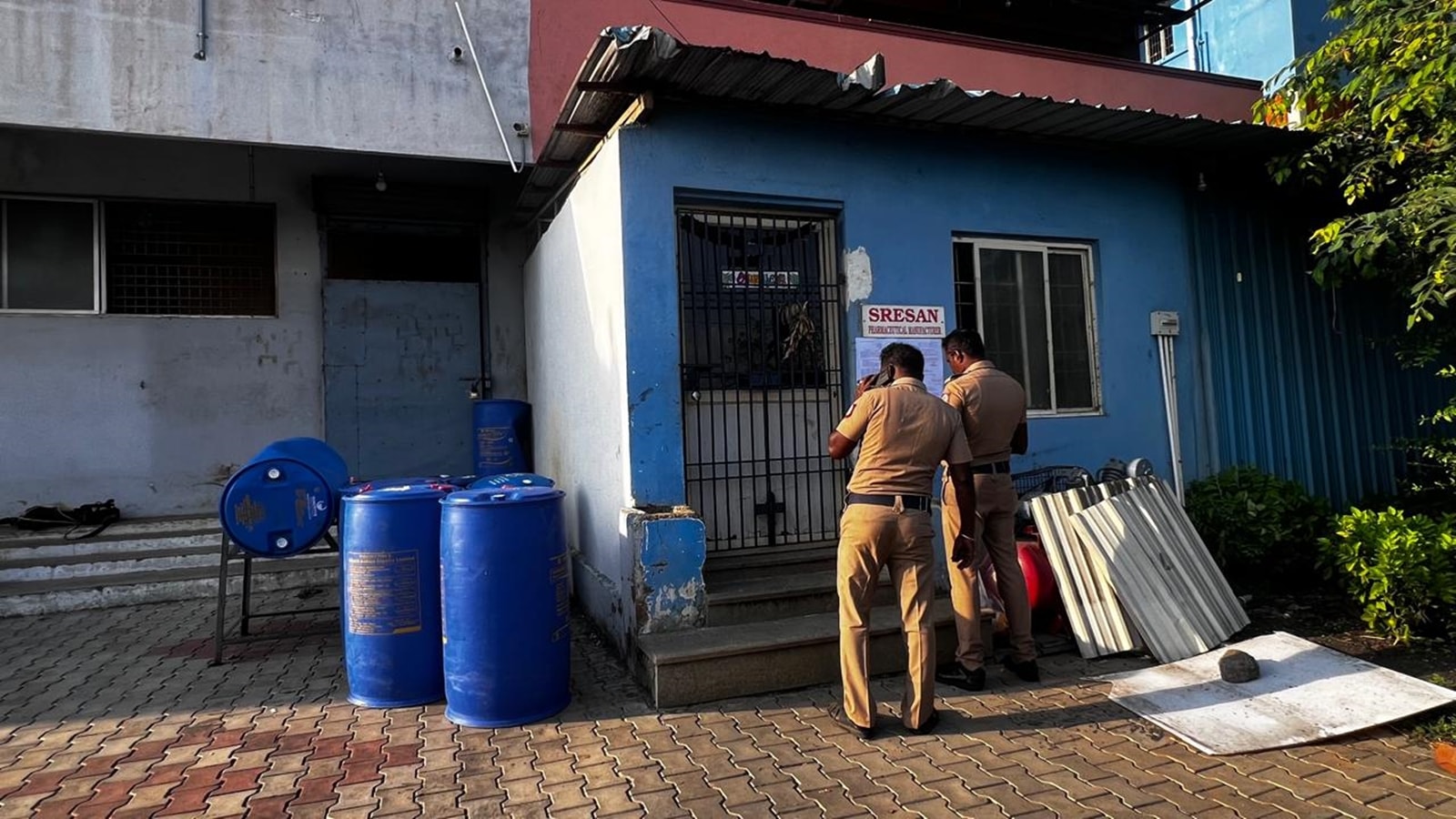
Negligence, Oversight, and a Regulatory Wake-Up Call
As outrage grows, the spotlight has turned sharply on India’s pharmaceutical regulatory system. Investigations reveal that Sresan Pharmaceuticals, originally registered as a private company in 1990, was struck off the Ministry of Corporate Affairs register years ago. Despite this, it continued operating illegally under a proprietary structure, escaping scrutiny from both state and central drug regulators.
This loophole in registration oversight has raised grave concerns about how many other defunct or unlicensed pharmaceutical units may still be producing medicines across the country.
Even India’s top drug regulator, the Central Drugs Standard Control Organisation (CDSCO), admitted to serious lapses in manufacturing and quality control practices. A recent advisory noted that several pharmaceutical firms were not testing every batch of raw materials or active ingredients, a violation that undermines the safety of countless drugs currently in circulation.
The Madhya Pradesh government has already suspended two drug inspectors and a deputy director of the Food and Drug Administration (FDA), and transferred the state’s drug controller pending a full inquiry.
Meanwhile, Chhindwara-based doctor Praveen Soni has been arrested for alleged negligence related to prescribing the syrup. His bail plea was rejected by a local court in Parasia, prompting the Indian Medical Association (IMA) to threaten an indefinite strike in protest of his arrest.
Expanding Probe: A Web of Accountability
With Ranganathan in custody, the investigation is set to expand beyond Sresan Pharmaceuticals to uncover the entire chain of complicity. Police sources have confirmed that chemical suppliers, stockists, distributors, and medical representatives will all come under the scanner.
“The aim is to identify every person and process that enabled this deadly product to reach the market,” said an official from the Special Investigation Team (SIT), which has been formed to handle the case. “This tragedy could have been prevented if even one checkpoint had worked as intended.”
Authorities are also investigating whether counterfeit labeling, falsified test reports, or bribery within the regulatory ecosystem played a role in the tragedy. Early indications suggest that Sresan Pharma falsified batch records to pass off contaminated products as safe for distribution.
A Painful Reminder of Past Tragedies
This is not the first time India has witnessed deaths caused by diethylene glycol contamination. Similar incidents were recorded in 1998 in Gurgaon, 2019 in Jammu, and 2022 in The Gambia, where an Indian-manufactured syrup was linked to the deaths of over 60 children. Despite repeated warnings and regulatory advisories, systemic gaps in monitoring and compliance persist.
The Coldrif case once again highlights the urgent need for stricter enforcement, transparent licensing systems, and robust batch-testing protocols. Public health experts have called for the creation of a national drug safety database and real-time inspection frameworks to prevent such tragedies from recurring.
A Nation Demands Answers
As the investigation deepens, public anger continues to mount. Parents demand justice, doctors demand clarity, and regulators face mounting pressure to reform a system that has repeatedly failed its citizens.
For now, the arrest of Ranganathan Govindan offers a glimmer of accountability. Yet, for the families of the 22 children who lost their lives to what should have been a simple cough remedy, no punishment will ever be enough.
The tragedy serves as a grim reminder that in a country often hailed as the “pharmacy of the world,” the safety of its medicines must come before profit, complacency, and corruption.
With inputs from agencies
Image Source: Multiple agencies
© Copyright 2025. All Rights Reserved. Powered by Vygr Media.

